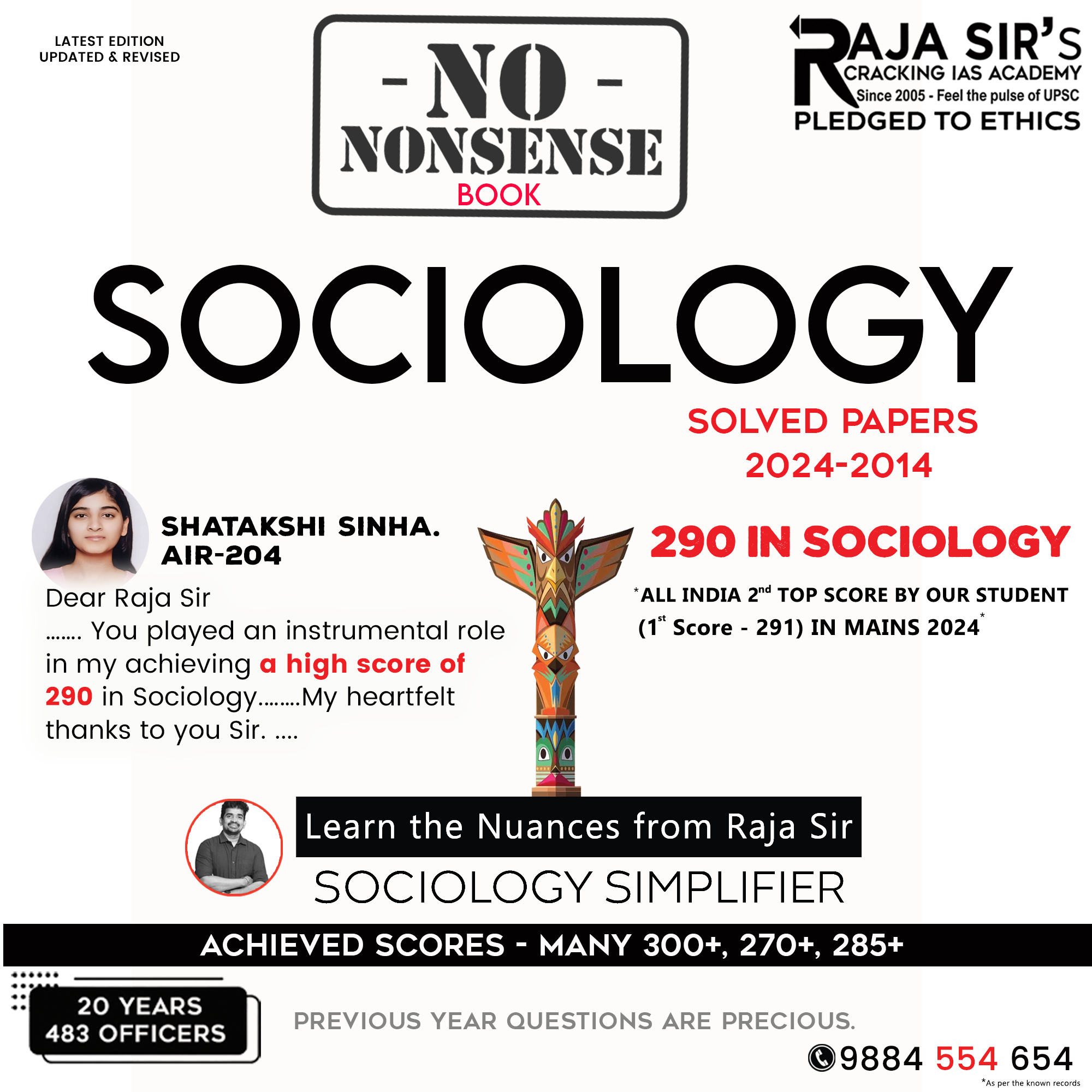- Home
- Prelims
- Mains
- Current Affairs
- Study Materials
- Test Series
“It is not the consciousness of men that determines their being, but on the contrary, their social being determines their consciousness.” Critically examine this statement in the light of Karl Marx’s notion of class struggle.. [Sociology - Mains Daily Answer writing Practice (20 Marks) - Paper 1]

Karl Marx’s materialist conception of history, also known as historical materialism, is a theory that explains societal development through the lens of economic structures and class relations. It rejects idealist interpretations of history and emphasizes that material conditions shape human consciousness and institutions.
Material Conditions as the Basis of Society
- Marx argued that the mode of production—how goods are produced and who controls production—determines the structure of society.
- Quote: “It is not the consciousness of men that determines their being, but their social being that determines their consciousness.”
Base and Superstructure
|
Component |
Description |
|
Base |
Economic foundation: means and relations of production |
|
Superstructure |
Institutions like law, politics, religion, and culture, shaped by the base |
- Changes in the base lead to transformations in the superstructure.
Stages of Historical Development
|
Stage |
Dominant Class Conflict |
|
Primitive Communism |
No classes; communal living |
|
Slavery |
Slave owners vs. slaves |
|
Feudalism |
Lords vs. serfs |
|
Capitalism |
Bourgeoisie vs. proletariat |
|
Socialism/Communism |
Classless society (Marx’s envisioned future) |
Class Struggle as the Driver of History
- History progresses through dialectical conflict between classes.
- The proletariat, through exploitation, develops class consciousness and seeks revolutionary change.
- This leads to the overthrow of capitalism and the emergence of socialism.
Contemporary Context
- Industrialization and labor movements reflect Marx’s ideas.
- Global inequality and capitalist crises (e.g., 2008 financial crash) highlight contradictions in capitalism.
- Digital capitalism and gig economy challenge traditional class analysis but still show exploitative dynamics.
Criticisms
Economic Determinism
- Max Weber argued that Marx overemphasized economic factors and ignored the role of ideas, culture, and religion in shaping society.
- Critics from the Frankfurt School (like Adorno and Horkheimer) emphasized the autonomy of culture and ideology, challenging the base-superstructure model.
Reductionism and Oversimplification
- Anthony Giddens, in A Contemporary Critique of Historical Materialism, criticized Marx for reducing complex social phenomena to economic structures. He proposed a more nuanced theory of social structuration that includes agency and temporality.
- Murray Rothbard, an anarcho-capitalist, argued that Marx’s view of consciousness being determined by material conditions was overly simplistic and ignored individual autonomy.
Historical Determinism and Teleology
- Marx’s idea that history inevitably progresses through stages toward communism has been labeled teleological.
- Peter Singer and others questioned whether the base truly determines the superstructure, suggesting a more reciprocal relationship.
- Friedrich Engels himself cautioned against strict determinism, stating that economic factors are “ultimately determining” but not the only influence.
Failed Predictions and Practical Outcomes
- Marx predicted the collapse of capitalism and the rise of a classless society, but capitalism has adapted, and communist regimes often led to authoritarianism.
- Critics like Ravi Batra and Prabhat Ranjan Sarkar argued that Marx’s framework lacked flexibility to account for non-economic forces in social evolution.
Evolutionism and Functionalism
- Giddens critiqued Marx’s use of evolutionary logic, arguing that social change is episodic and contingent, not linear or inevitable.
- He also challenged the functionalist assumptions in Marxist theory, such as the idea that institutions exist solely to reproduce class relations.
Contemporary
- David Graeber and other postmodern thinkers emphasized discourse and power over economic structures, offering alternative frameworks for understanding society.
- Left-libertarian thinkers have reinterpreted historical materialism to include decentralized, non-statist models of social organization.
Marx’s materialist conception of history remains a powerful analytical tool for understanding social change. While it has limitations, its emphasis on economic structures and class conflict continues to inform debates on inequality, development, and revolution.










 Latest News
Latest News

 General Studies
General Studies